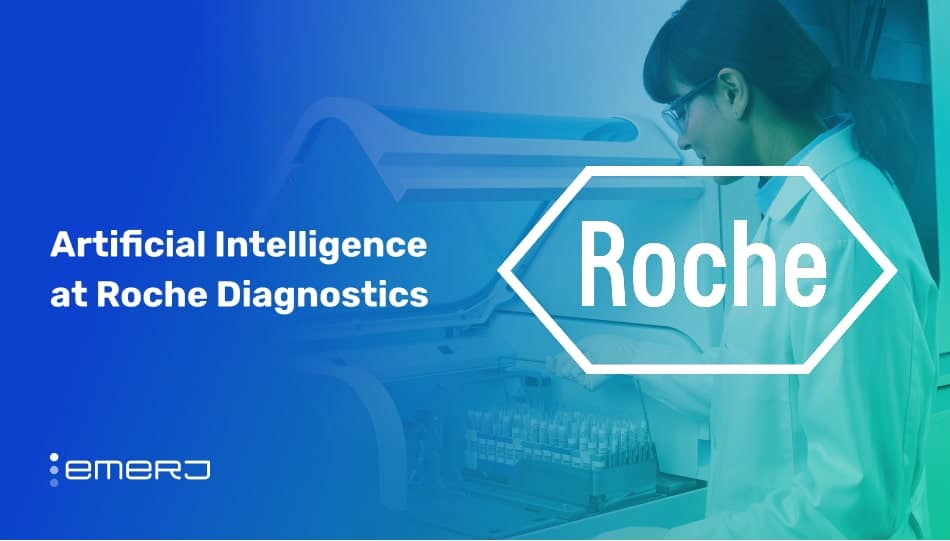Introduction to Roche Diagnostics and Its AI Strategy
Roche Diagnostics, a key division of Swiss healthcare giant F. Hoffmann-La Roche AG, continues to lead innovation in the diagnostics landscape through the strategic use of artificial intelligence (AI). Headquartered in Indianapolis, Indiana, the North American arm of Roche Diagnostics plays a critical role in the company’s global footprint, employing over 46,000 individuals worldwide.
As part of Roche Group, which employs more than 100,000 people globally, Roche Diagnostics has embraced AI to enhance operational efficiencies and elevate patient care. The division has invested heavily in AI integrations and partnerships, aiming to drive improvements in diagnostics accuracy, pathology decision-making, and therapeutic targeting.
Enhancing Global Supply Chains with Predictive Analytics
In response to global supply chain disruptions, including those exposed during the 2020 pandemic, Roche Diagnostics implemented AI-driven predictive analytics to reduce inventory volatility and maintain consistent healthcare service delivery. The company partnered with Baxter Planning to create a robust AI platform capable of predicting demand, minimizing stockouts, and dynamically managing global inventory.
The AI system harnesses a wide variety of data inputs, including:
- Historical usage trends from service events
- Real-time diagnostic equipment failure and service requests
- Inventory levels from both Roche and third-party logistics partners
- Regional demand patterns and supplier delay data
This information feeds into supervised and unsupervised learning models that forecast demand and simulate different logistical scenarios. These insights are integrated across Roche’s existing enterprise resource planning (ERP) and customer relationship management (CRM) systems, creating a seamless, end-to-end data flow for smarter inventory decision-making.
Although Roche has not published specific results from this implementation, Baxter Planning has documented success with other clients, such as a 50% reduction in inventory costs and a 99% service level improvement for Palo Alto Networks.
AI-Powered Sales Recommendations for Increased Engagement
Roche Diagnostics also sought to optimize its sales operations by implementing machine learning (ML) within its CRM platform. By leveraging AI, Roche aimed to provide sales representatives with real-time content and personalized engagement strategies for healthcare professionals (HCPs), thus reducing manual workload and improving communication effectiveness.
To support this initiative, Roche first modernized its data architecture using dbt Labs’ platform. This transformation unified disparate data silos spread across more than 80 countries, consolidating local CRM systems, data warehouses, and analytics tools into a centralized ecosystem. Previously, sales teams relied on intuition due to fragmented data access, resulting in:
- Inconsistent messaging and customer experiences
- Inefficient outreach methods
- Limited insights into effective engagement strategies
Post-transformation, Roche’s AI engine can now correlate internal CRM activity with external datasets—such as clinical trial participation, academic publication history, and social media influence—to identify rising thought leaders in the medical field. This enables targeted, data-driven interactions.
Sales reps receive AI-generated recommendations within the CRM interface, allowing them to tailor communication based on prior engagements. Although no quantitative metrics from Roche’s deployment have been released, the company has reported significant cost savings from supporting infrastructure changes, including the decommissioning of four legacy systems and a 70% cost reduction.
Strategic Impact and Future Outlook
Roche Diagnostics’ dual focus on operational resilience and customer-centric sales strategies demonstrates how AI can be leveraged to solve real-world challenges in healthcare. From preventing diagnostic equipment downtime to enhancing the precision of sales outreach, AI is transforming the way Roche delivers value across its ecosystem.
Moreover, the company’s strategic investments in data modernization and predictive analytics set a strong foundation for future AI applications. As global healthcare demands grow more complex, Roche’s commitment to AI will likely continue to play a pivotal role in improving both internal efficiency and patient outcomes.
This article is inspired by content from Original Source. It has been rephrased for originality. Images are credited to the original source.

